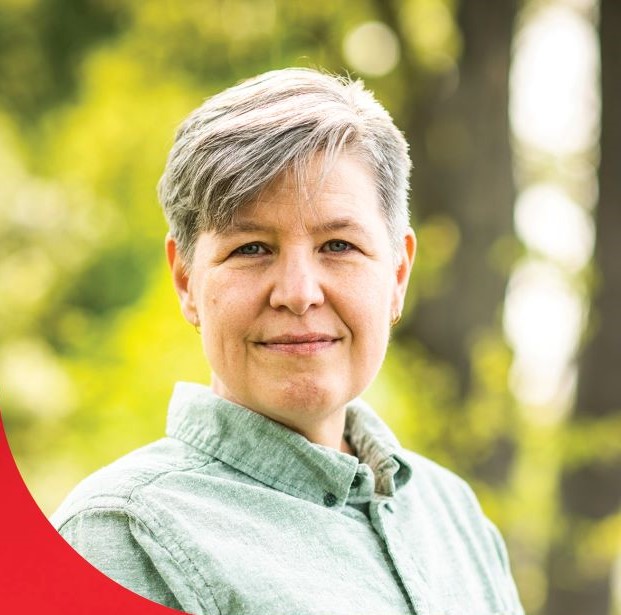Crossing boundaries, disrupting binaries: A queer perspective on the diversity of life
Thu. Nov. 14 07:00 PM
- Thu. Nov. 14 08:30 PM
 Laird Lecture 2024
Laird Lecture 2024
"Crossing Boundaries, Disrupting Binaries: A Queer Perspective on the Diversity of Life"
Dr. Karen Warkentin
Professor of Biology and Professor of Women’s, Gender, and Sexuality Studies
Boston University
Research Associate, Smithsonian Tropical Research Institute, Panama
Thursday, November 14
7:00 to 8:30 PM
3C00 Centennial Hall
University of Winnipeg
Reception to follow in foyer
Summary: Dr. Karen Warkentin’s (they/them) discovery of frog embryos hatching to escape predation led to a life-long fascination with the flexibility of development and behaviour. Dr. Warkentin will share lessons learned from frogs to reveal how sexual and reproductive variation in nature disrupts binary thinking. They argue that teaching this diversity can help make Biology better and more inclusive. Dr. Warkentin’s deep appreciation of the value of diverse perspectives among scientists motivates their work to dismantle obstacles to scientists from marginalized communities.
Download the event poster [PDF]
Want more details?
Crossing boundaries, disrupting binaries: A queer perspective on the diversity of life
Who we are shapes the questions we ask, but to study diversity in life history and behavior we must look beyond normative expectations. Human diversity enhances innovation, thus inclusive biology and interdisciplinary work facilitate discovery. Observations of unexpected variation can generate new research directions, exemplified in our work with tropical frogs. Non-reproductive and same-sex sexual behavior suggest diverse functions of animal sexuality. Integrating animal sexual diversity with primate evolution and the biology of cooperative breeding, within the framework of developmental plasticity, offers new perspectives on human sexual and gender diversity.
Biographical information
Karen Warkentin (they/them) is a Professor in the Biology Department and the Women’s, Gender & Sexuality Studies Program at Boston University and a Research Associate at the Smithsonian Tropical Research Institute in Panama. As an integrative biologist, their research combines ecology, evolution, development, behavior and physiology to understand variation in life histories. Much of their research focuses on phenotypic plasticity in early life stages of frogs, examining hatching as a critical transition point and plastic hatching timing as an embryo self-defense strategy. They are also interested in reproductive diversity and evolved and plastic variation in sexual traits.
Prof. Warkentin often works across disciplines. They collaborate with engineers and computer scientists to study how embryos (and other animals) use vibrations as a source of information and with humanists and social scientists in their gender and sexuality studies work. They helped develop Boston University’s Women’s, Gender & Sexuality Studies Program and are a member of the BU Gender + Sexuality Studies Group. They bring a biological perspective to gender and sexuality studies, a feminist and queer perspective to biology, and an appreciation of the value of human diversity to both fields, and are increasingly asked to combine these approaches in presentations.
Prof. Warkentin grew up in Kenya and Canada, did their BSc at the University of Guelph, MSc at Dalhousie University, PhD at the University of Texas, Austin, and postdoctoral studies at the University of Kentucky and Smithsonian Tropical Research Institute. Warkentin has studied Neotropical frogs since 1991, working mostly in Costa Rica and Panama. They worked in public environmental education for eight years before starting graduate school and are committed to making science broadly accessible. Their team’s research has often been featured in the media, including Discover Magazine, Discovery Channel, National Geographic, New York Times, Science News, Scientific American, David Attenborough’s Life in Cold Blood, CBC’s Quirks and Quarks, NPR’s Science Friday, and a social media video viewed over 2.8 million times. They have organized symposia on Environmentally Cued Hatching Across Taxa and on Diversity, Plasticity, and the Science of Sexuality.
